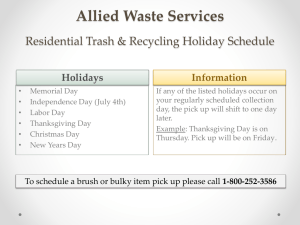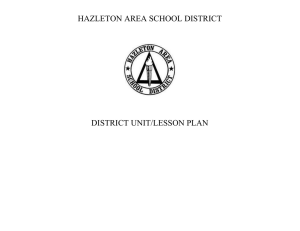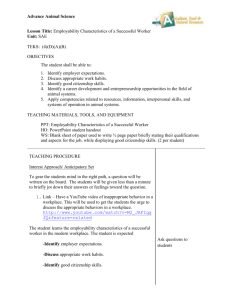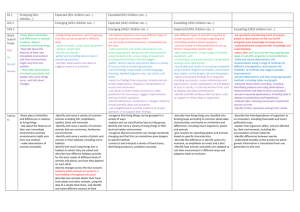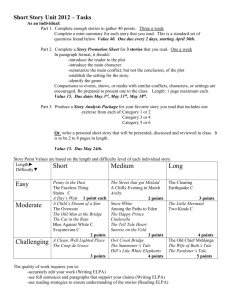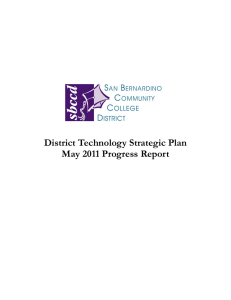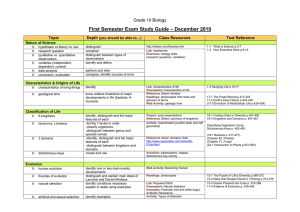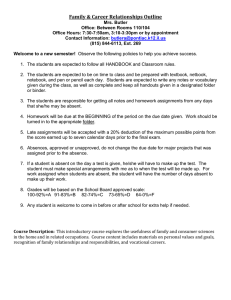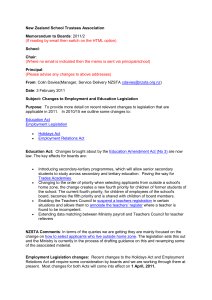9 Principles of economics
advertisement
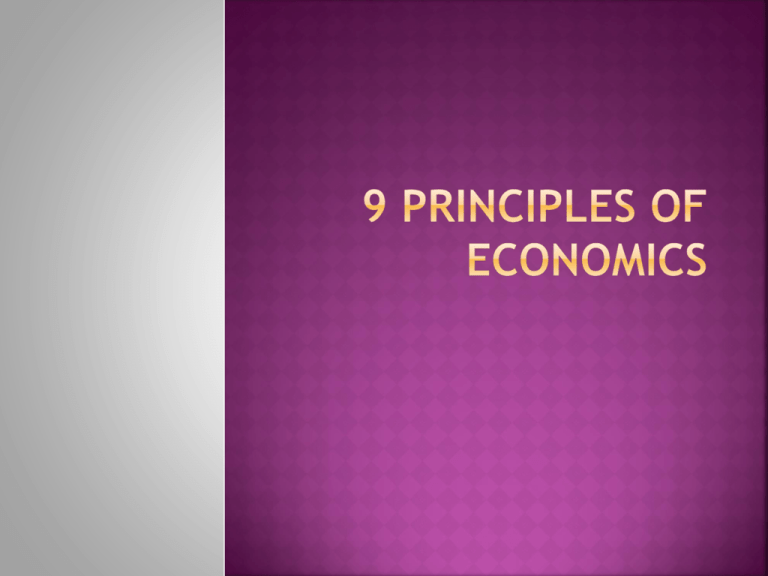
Economics is about choosing from alternative ways to use scare resources to accomplish goals All economic analysis focuses on how people choose The economist’s concept of cost is something that is given up when choosing something else The alternative that was given up is the cost of the choice called “opportunity cost” Opportunity costs is not all of the alternatives you could have selected; it is what is lost by the choice you did make Every choice we make involves benefit/cost analysis, either implicitly or explicitly There are 5 steps in the benefit/costs analysis. They are: -Identify the goal and resources available to achieve the goal -Identify alternative ways to achieve the goal and narrow down the options -Evaluate the advantages and disadvantages of each option -Choose one of the alternatives -Identify the alternative not selected as the opportunity cost Wage: $8.00 Incentives: Free movies, soda and popcorn Hours: 15-20 Holiday Pay: Time and a half on 3 holidays No health insurance I love this job Movie Theater Wage: $8.30 Incentives: Five percent off all items purchased Hours: 30 Holiday Pay: Double time on 6 holidays Health insurance This one, not so much Albertson’s Wealth is subjective evaluation of one’s wellbeing, not an amount of money i.e. you won’t choose something if there is no incentive! Two parties with equal information will voluntarily exchange only if they gain more than they give An economy accomplishes two tasks: -Production of goods and services desired by society -Facilitation of exchange between parties Profit is the major incentive of a market economy and competition is the major regulator Employers will hire workers if the employers expect to gain more than they give Employers will give high salaries if they expect the revenue to be brought in higher than the amount being paid to the individual The three goals of macroeconomic policy are economic growth, full employment and price stability Government policies always involve trade- offs When governments use resources there is an opportunity cost The benefits and the opportunity cost of particular policies are not always evenly distributed



